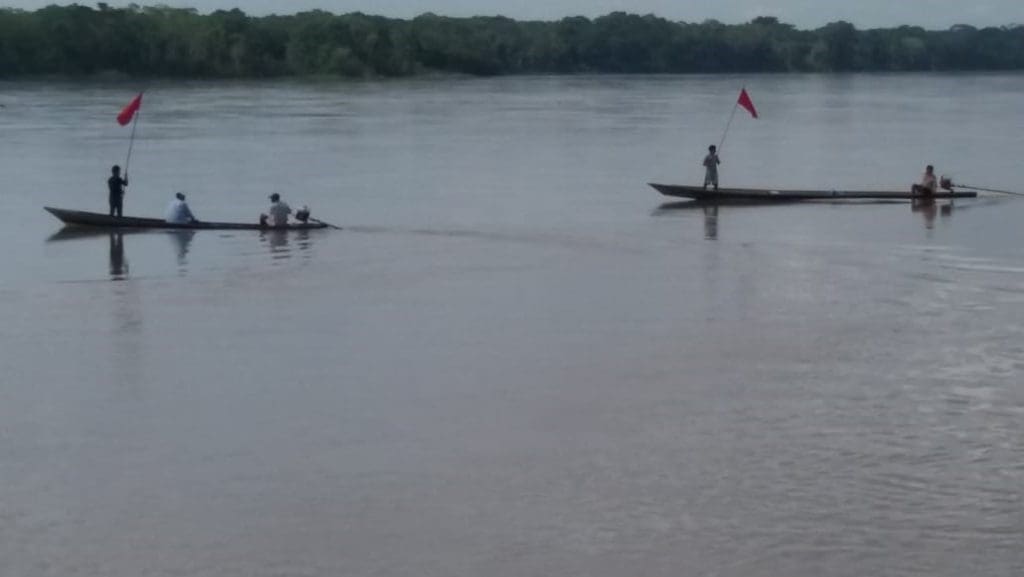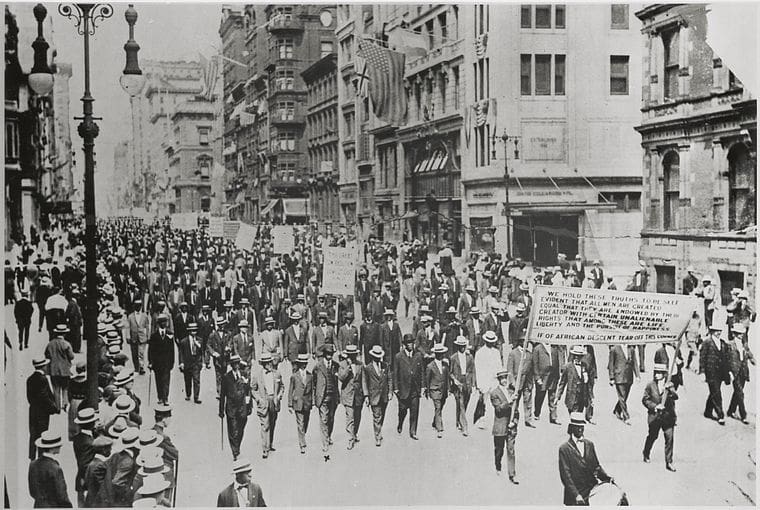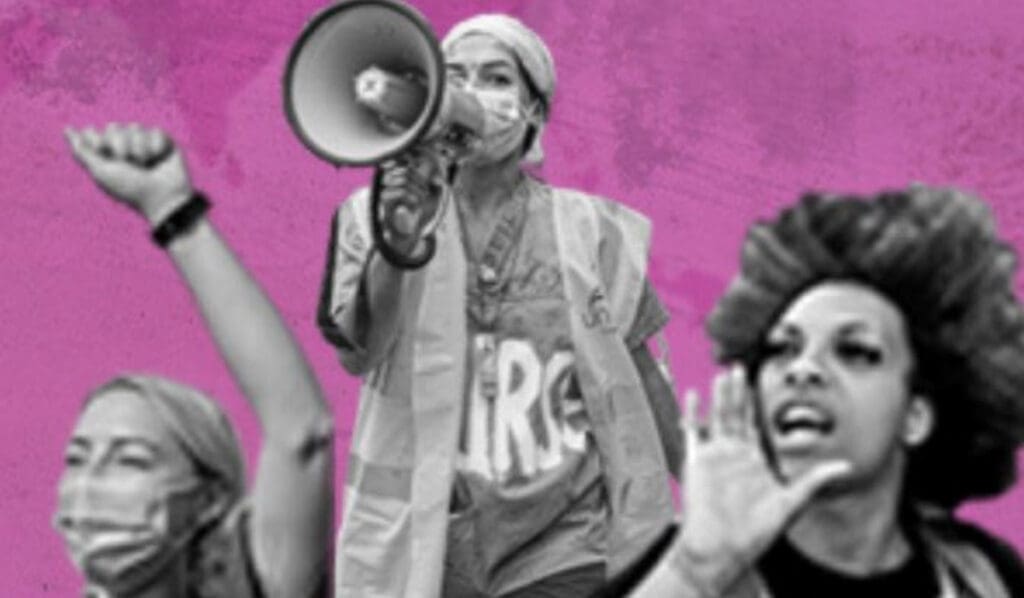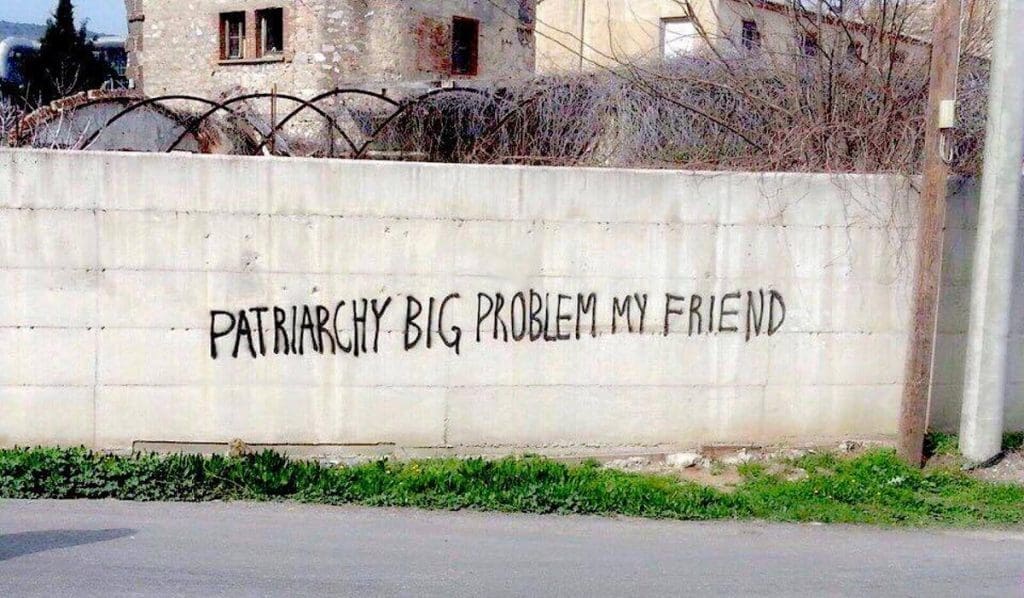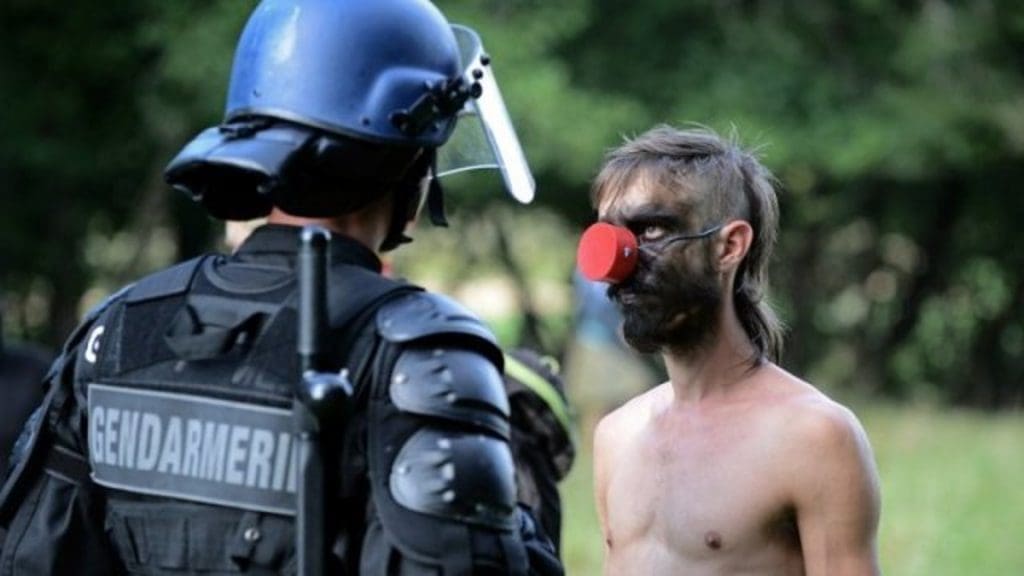Transcribed from the 17 September 2020 episode of This is Hell! Radio (Chicago) and printed with permission. Edited for space and readability. Listen to the whole interview:
Though there are over five thousand communities and four hundred different peoples or ethnic groups across the Amazon—and their cultures and worldviews are very different—there are some issues that are common to Indigenous people in the Amazon. These are things that bring them together, to fight together.
Chuck Mertz: Last year, the Amazon was on fire, and the world was shocked and appalled by the environmental destruction, especially in light of climate change and the Amazon being the so-called ‘lungs of the world.’ Now the people of the Amazon are under increasing threats, not only from fires but extractive industries targeting resources on Indigenous land—with the industry actually increasing their work during the pandemic, which raises the likelihood of contact and spreading of COVID-19 to the people of the Amazon, whose immune systems are not prepared.
The pandemic is revealing the importance of Indigenous politics within the Amazon region. Here to help us understand what is happening right now and the Amazon’s Indigenous politics, Sylvia Cifuentes wrote the Society+Space article “Territory, Autonomy and Rights: Indigenous Politics and COVID-19 in the Amazon Basin.”
Welcome to This is Hell!, Sylvia.
Sylvia Cifuentes: Hi, good morning, thank you so much for the invitation. I’m very glad to talk to you about the Amazon.
CM: You write, “Not only has deforestation increased during the pandemic, but the quarantine and the pandemic have been an opportunity for armed miners and loggers to forcibly enter the territories of the Indigenous, or for states to justify more widespread extractivism.”
When we are supposed to be isolating, why is now the time for more extractivism, having more contact, and expanding into an area where people are and have traditionally tried to isolate themselves? Why is a time of staying at home conducive to extractivist industries expanding in the Amazon?
SC: In several Amazon countries, for example Ecuador, industries are having a very hard time, as in the US: growth is slowing, and a lot of people are losing their jobs. So governments are taking this as an opportunity to say we need to expand extractivism, we need to do more mining, to have more resources to address the pandemic, to give more employment. Of course this causality is not direct: more mining doesn’t mean there’s going to be more employment or that the resources are going to be directed at addressing the pandemic. But it is definitely an excuse that governments use to extract more from the Amazon.
In the case of Ecuador and other countries, it also seems that much of the attention on what governments are doing and what people are doing is directed towards the pandemic. There is no monitoring of what’s going on in the Amazon. In Brazil, since Bolsonaro took office, there has been a lot less attention on deforestation. Deforestation has increased, as you probably have seen, in the last few years. This is another way people are entering the territories: there’s not so much attention on what’s going on in the Amazon.
It’s also why Indigenous organizations have been trying to call the world’s attention to what’s going on.
CM: You quote how Gregorio Díaz Mirabal, the general coordinator of an organization called Coordinator of Indigenous Organizations of the Amazon Basin, COICA, commonly refers to the spread of COVID-19 in Amazonian Indigenous communities: “We are facing a new genocide.”
A genocide is a deliberate killing of an ethnic group or nation. How are Indigenous deaths due to COVID-19 intentional? How can you intentionally target the Indigenous or anybody with COVID-19?
SC: When saying these words, I think Indigenous leaders refer to the abandonment they feel governments have had towards Indigenous communities, and towards the Amazon in general, for years. As we were talking about, whereas resources have been extracted from the Amazon—oil and minerals, soy plantations—not much of those resources come back into the Amazon.
Health systems and services in the Amazon are really unavailable, especially for Indigenous peoples, who sometimes live very far away from any type of specialized medical attention like what they could need to address COVID-19. That’s why they call this a new genocide. Because of colonialism and racism, they have been left behind for years. This is the argument. Because of that abandonment, today it’s been harder to address the pandemic in Indigenous territories in the Amazon.
CM: You were just mentioning abandonment of Indigenous people by the state. How difficult is that balance between being abandoned by the state and wanting to be isolated from the state? How difficult is that balance to achieve for Indigenous communities?
SC: There’s a broad range of positions in this regard. Autonomy also means different things depending on the Indigenous organization or the Indigenous community that we are talking about. But there are calls from most Indigenous communities and organizations for intercultural health. There are calls for more mixed systems between different types of conceptions of what health is, and how to achieve health, and what the different techniques and medicines are that are used in this. Organizations are always trying to find a balance between having some services for last resort; a lot of leaders I’ve heard from at least acknowledge that some things that communities will need, for example emergency services and ICUs, should be provided by the state—especially since the state is taking resources from the Amazon and from Indigenous communities.
There are also calls for cultures and traditional forms of medicine to be recognized, and at the same time there are certain things that these practices cannot address—in that case the state should come forward. It is also important that there are many cities in the Amazon with mestizo population; there should be health infrastructure for that population as well. I think that’s where the balance lies. There should be autonomy for cultures to be expressed and for different forms of medicine to be practiced, and also there should be an infrastructure on which they can rely for emergency and extreme cases.
The defense of the territories is something that brings them all together, and the defense of the territories is linked with the struggle against extractivism in all its different forms.
CM: Far too often, the problem is that certain peoples’ politics—for instance, Black politics—are seen as monolithic. Historian Cedric Johnson pointed out on our show that obviously Black politics are not monolithic. It sounds like Amazonian Indigenous politics are also not monolithic.
To what extent do you think Amazonian Indigenous politics has become more organized together, with all the varied politics in the Amazon? Is the pandemic bringing Amazon politics, which are not monolithic, together?
SC: Yes, I do think so, the pandemic is bringing them together. But there have already been important processes of bringing different organizations and communities together, for example since the birth of COICA, the coalition you mentioned. It brings together different organizations from the nine Amazon countries. And even though organizations are very emphatic in the fact that there are over five thousand communities and four hundred different peoples or ethnic groups across the Amazon—and of course cultures are very different, and worldviews are also very different—there are some issues that are common to Indigenous people in the Amazon. These are things that bring them together to fight together. That’s one of the bases of COICA and its member organizations across the nine Amazon basin countries.
For example, the defense of the territory is something that brings them all together. The leaders I talked to shared a view of the territories as a place that gives life and that brings together different elements, and makes life and cultures possible, and possible to persist. The defense of the territories is linked with the struggle against extractivism in its different forms: monocultures, mining, and so on.
There’s also intercultural health and intercultural education—these things have brought Indigenous organizations together for some years now. COICA is thirty-six years old this year. Also, even national organizations have been doing the work of trying to speak about the different communities inside a country. This is sometimes very difficult; there are many different positions and no one says how to address the different issues Indigenous communities are facing. There is a lot negotiation, and sometimes there are also conflicts, but there is definitely a will to try to work together, even before the pandemic.
And now that the pandemic is here, there has been a move towards trying to get together, organize, and find ways to respond to the pandemic.
CM: You write, “The dramatic impacts of the pandemic for Indigenous people in the Amazon basin cannot be disconnected from broader impacts—ecological, cultural, political—that Indigenous communities and territories are experiencing. In the interviews of my broader research, all leaders expressed that territories represent nourishment, medicine, and spirituality, and are the space where Indigenous peoples can fully practice their culture and lifeways. They represent the possibility of perpetuating the vitality of Indigenous cultures and even safeguarding human rights.”
I was going to ask you how the Indigenous view of territory may differ from the state’s view of territory, but I guess there’s a bigger question: does the Indigenous view of territory make attacks on their territory attacks on them, attacks on their culture? Is expanding farther into and extracting more and more resources from the Amazon in and of itself an act of genocide?
SC: Yes, definitely. In my work with Indigenous women, there is a lot of reference to how territory can also be conceived as the human body. Body and territory are two aspects that are very linked together. Violence to the territory is similar to violence to the body. So yes, definitely: intervening in the territory and violence through extractivism is also a way of genocide. This is very linked to ethnocide, which is sometimes not about physically killing people, but killing culture. This happens in many different ways. In the US it is referred to as assimilation. Extractivism also carries with it an ethnocide, a way of killing culture: culture cannot exist in the same way when the territory is under threat.
CM: You write, “Autonomy has been enshrined as the right to self-determination and self-governance in legal instruments including the UN declaration on the rights of Indigenous peoples and the Ecuadorian and Bolivian constitutions. In the case of Indigenous organizations, autonomy represents the possibility for them to define their own destiny, direct their own socio-cultural lives, and the rhythm of transformation.”
How might that kind of autonomy affect the state and its extractive industries? Can this be a challenge, a threat to state powers? Is the state opposed to Indigenous autonomy simply because of its impact on the economy? Is Indigenous autonomy bad for the economy and therefore a threat to the state?
SC: Again, there are many different views of what exactly represents “development” and well-being in Indigenous territories, but some of the authors I quoted write more extensively about autonomy, saying for example that it is mentioned even in constitutions that states should try to achieve autonomy and self-determination, but there haven’t been many actions to implement this autonomy or make autonomy possible for Indigenous communities and organizations in the Amazon. In Ecuador there is this idea of buen vivir that was taken from Indigenous worldviews and supposedly applied to the government, but that didn’t really happen.
There’s definitely some conflict there. States—Ecuador, for example—make concessions for oil extraction in most of the Amazon, and this overlaps directly with Indigenous territories. There are important organizations in the Amazon that are directly contesting this, not only through protest but also suing the state. The state has to go through consultation processes, so all the communities just say, “We don’t want to be consulted: we do not want oil extraction in our territory.” This, of course, directly threatens the idea of development that governments pursue. There are a lot of contradictions. Most countries in the Amazon are based on an extractive mode of development.
So there are definitely contradictions and conflicts. At the same time, Indigenous communities are trying to come up with their own life plans, which is what they call different ways of writing down what a good life would be for each of the communities. Sometimes, some organizations find there can be synergies with what the government does, but sometimes there is a lot of conflict, just based on the different ways development, well-being, or a good life is conceived by these different parties.
The nation-state divides. Some ethnic groups have been coercively divided. It draws a frontier and cuts across Indigenous territories that were conceived as a single thing before. It establishes limits that are artificial for Indigenous peoples and territories.
CM: You write, “In additional to the physical risks, COVID-19 represents a significant threat to cultural survival, particularly because of the age group it impacts the most, that is, the elders who pass down the knowledge. While politicians in other parts of the world have seen COVID-19’s impact on the elderly as a reason not to take strong actions, in the Amazon this is a reason for special concern and immediate action. In Indigenous communities, elders are spiritual guides. They represent the people’s memory and embody their knowledge.”
What happens to a society when the people survive but the culture does not, or is in tatters without its memory?
SC: This has been going on ever since colonial times in South America. There are different types of impacts, not only from extractive economies but also from attempts to assimilate the populations in the Amazon. What often happens, and what happens historically, is that some groups lose their memory, their knowledges, and stop identifying as Indigenous. This also threatens a lot of knowledge that can be useful to respond to pandemics in the future. COICA has been very active in acknowledging recently that a lot of the knowledge we need to face climate change exists in the Amazon, in these communities. So these attempts at cultural assimilation are erasing cultures and also threaten all the different knowledges that communities and elders have.
CM: Does the pandemic, then, reveal to us—as is clear to the Indigenous peoples of the Amazon region—that colonization has never stopped? That not only are we suffering from past colonization but we continue to suffer from the current and ongoing colonization that is an extension of historic colonizing and has never stopped?
SC: Yes, definitely. That’s also something that a lot of the literature concerning autonomy tries to get at. Also, the way that South America is organized right now, which influences politics, health, and cultural survival and so on, is defined by how states are organized. We have a model of nation-states that was imported or imposed from Europe; this alien system of nation-states was created in Europe and brought to the rest of the world.
The nation-state divides. Some ethnic groups have been coercively divided. It draws a frontier and cuts across Indigenous territories that were conceived as a single thing before. It establishes limits that are artificial for Indigenous peoples and territories: for example, sacred sites of an Indigenous group can be in places the state does not recognize as lands belonging to that specific Indigenous group. There are many ways in which colonization is represented in nation-states, or represented in Western medicine or Western education—national education in most South American countries is created following guidelines from Europe; for example, world history is European history in countries such as Ecuador.
So colonization is very much there. It hasn’t stopped. That’s why the organizations and scholar-activists who talk about decolonization and anti-colonization are trying to contest all of the different aspects of colonization: in knowledge, in health, in education, in politics, and so on.
CM: One of the things that you talk about in your article is neoliberalism, and the idea of individual and collective rights. You write, “The pandemic portrays an approach that can encompass rather than separate individual and collective rights.” How do these Indigenous politics encompass both individual and collective rights—how can the two coexist? Can we overcome the shortcomings and problems of neoliberalism by having an approach that encompasses rather than separates collective and individual rights?
SC: I don’t think we can overcome the problems of neoliberalism. There are some rights from the doctrine of human rights that Indigenous organizations don’t find problematic; also, individual rights have recently become very important for the organizations to defend because of threats that Indigenous leaders and land defenders have to their lives. That’s why human rights are gaining some relevance in Indigenous politics; also, some organizations support human rights directly.
There are threats to individual lives, but these threats to individual lives are also connected to the collective. They are connected to defending the territory: this wholeness, this space, and this possibility of living, the possibility of Indigenous people practicing their cultures. So even though it’s a threat to the individual person, it’s also a threat to the territory, and also to the possibility to live collectively in the territory in communities and so on, and with particular types of livelihoods and lifeways and cultures.
That’s what I meant with politics in the Amazon trying to embrace both types of rights. Ultimately they still refer to collective rights. But these individual lives are threatened by neoliberalism, or capitalism more deeply: by the need of capitalist states to extract from the territories. Companies have many possibilities to strike in remote places because of neoliberal policies that have allowed for them to globalize and have access across the globe.
So I think this view, even though they do refer to individual rights, is not related to neoliberalism. It is opposing neoliberalism and capitalism, I would say.
CM: Sylvia, thank you so much for being on our show.
SC: Thank you very much for having me, my pleasure.
Featured image: communal guards on the river in Amazonia. Via Society+Space.

